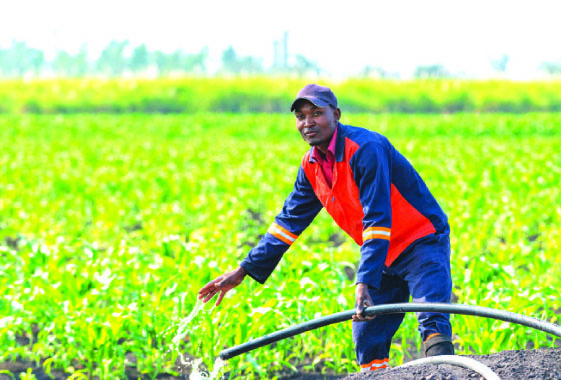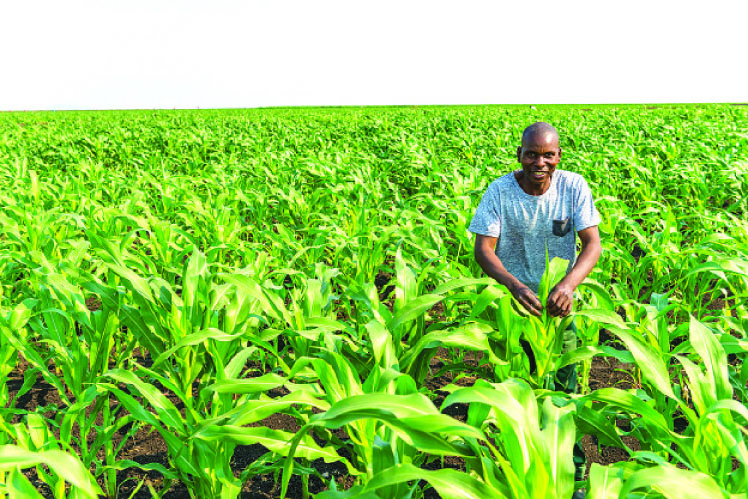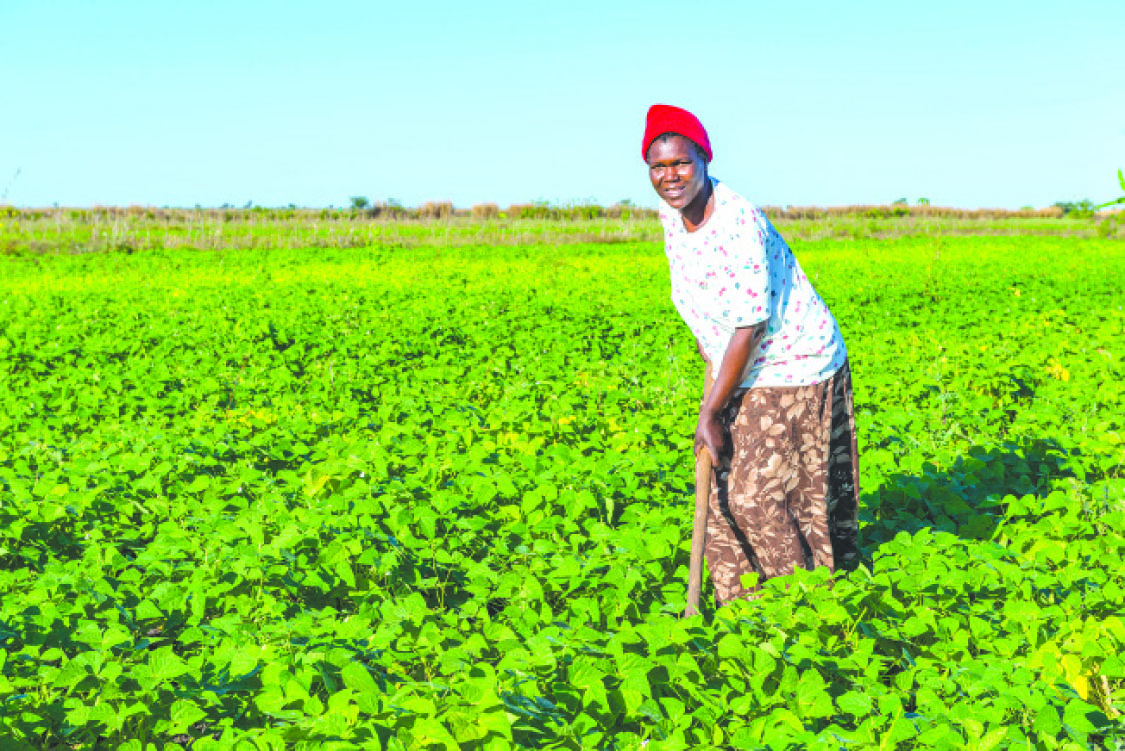
The ManicaPost

Post Correspondent
On Wednesday 7 December 2021, the Minister of State for Manicaland Provincial Affairs and Devolution, Honourable Nokutula Matsikenyere was at the Green Fuel Sugarcane Estates in Chisumbanje to hand over an additional 93 irrigated plots to the small scale farmers from the neighbouring community.
Green Fuel has a robust and vibrant Corporate Social Responsibility program that is immensely benefitting the local community.
The program has been coined ‘Vimbo – Hope for a better future’ in recognition of the need to inspire hope in the community of Chisumbanje and the surrounding villages.
Through Vimbo, a portfolio of community projects has been identified, all of which have been constructed around the principle of sustainable development through irrigation farming, entrepreneurial projects, education and social service infrastructure rehabilitation.

The irrigation schemes developed in Chisumbanje and Chinyamukwakwa are the hall mark of this program and provide small scale farmers with access to irrigation farming year-round.
At the inception of the ethanol project, the company made a commitment to develop 10 percent of all land under sugarcane in Chisumbanje for the community and thus far, they have honoured this.
To date, 1 250ha of land have been developed for the community in Chisumbanje and Chinyamukwakwa, at a cost of over $11 million to the company.
Of this, over 650ha of irrigated plots have been developed for over 1 300 small-scale farmers, ensuring consistent availability of water in an area that receives little annual rainfall, making the Green Fuel supported irrigation scheme the biggest in the country.

The water is pumped year-round at the company’s cost and, as a result, each farmer can produce up to three cash crops per year.
The company provides technical and extension services to the farmers as well as tillage services depending on availability of equipment.
The Country’s 2020 Cotton Farmer of the Year is a beneficiary of the Green Fuel Irrigation Scheme program.
A further 250ha have been developed for war veteran farmers and 410ha for settler farmers, all of whom are now out-growers for the company and, as such, receive consistent support and assistance.
In Zimbabwe, the energy and agriculture sectors continue to have a powerful influence on the future of the country, and for this reason, it is imperative that stakeholders continue in earnest with efforts to transform the economy and the country.
The initiative taken by the Green Fuel and Agricultural and Rural Development Authority (ARDA) Joint Venture to support this community’s socio-economic transformation agenda is therefore a welcome one.
Chipinge South is under natural Region 5 and as such receives erratic and inadequate rainfall with the recent farming season being characterised by low rainfall, significantly compromising food security in the region.
The newly developed irrigation schemes will promote economic development, agricultural production and food security and represent a timely intervention from Green Fuel and ARDA.
In addition to the irrigation schemes, Green Fuel also places significant emphasis on entrepreneurial and educational projects to ensure that the community impact is evident in the long term.
Entrepreneurial projects include:
Mana Creative Fashions — a sewing workshop which is run by a group from the local community, producing work suits and uniforms for the company and the surrounding schools;
A library and technology centre — opened in partnership with Old Mutual to provide the local students and community members with computer lessons and access to the internet and books;
Community run kitchens — which feed the staff in the factory and throughout the two sugarcane estates;
Dermal care – a project producing reusable sanitary pads for girls in the local schools
Blessed honey-makers — a bee-keeping project being run by a group of 10 ladies from the community;
Safesmart – a fencing project being run by a group from the community, making fencing from used tyres;
Educational projects include:
Ramangwana Rakajeka Bursery Program – 100 Children 100 Dreams – whereby the company sponsors school fees and stationery and supplies for 100 children attending schools in the immediate community.
Green Fuel employees then volunteer to mentor these students and encourage them to remain in school.
Happy readers — Green Fuel has recently implemented the Happy Readers Literacy Program in three of its neighbouring primary schools in an attempt to improve the deteriorating literacy rates in young school children.
The project provides the Happy Readers Learn-to-Read books and teachers’ resources, as well as teacher training and ongoing monitoring and evaluation.

Science laboratory — Green Fuel is in the final stages of constructing a science laboratory at one of the local high schools in order to increase students’ access to the sciences.
This will be the first and only Science Lab in the Chisumbanje, Chinyamukwakwa and Checheche areas and will provide invaluable access to further education for local pupils.
Community Centred projects include:
Rehabilitation of local roads and continuous road safety campaigns and support;
Access to water through the drilling of boreholes and installation of solar pumps;
Reforestation of the area through the Company’s extensive Tree Nursery; and
Healthcare support through assisting the local clinics and hospitals
Sanitiser distribution and Covid-19 awareness programs
With plans to grow its CSR portfolio as the company expands, Green Fuel continues to lead the way in facilitating sustainable development through its Corporate Social Responsibility program and sets a high standard for community engagement and development through CSR.
Green Fuel’s vision is to become Africa’s leading supplier of a dependable source of high quality, competitively priced ethanol; empowering local communities, increasing energy security and lessening dependence on fossil fuels.



